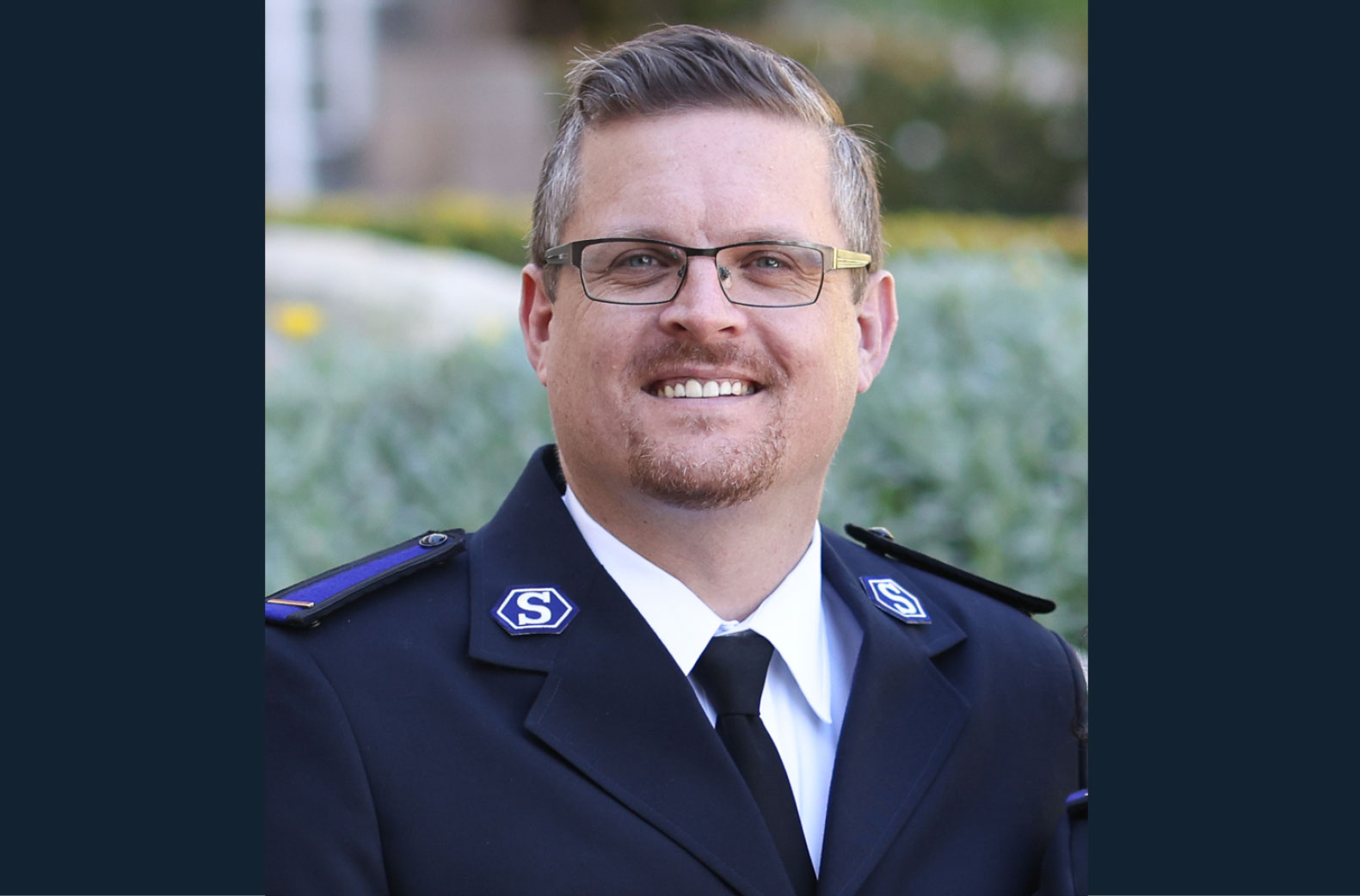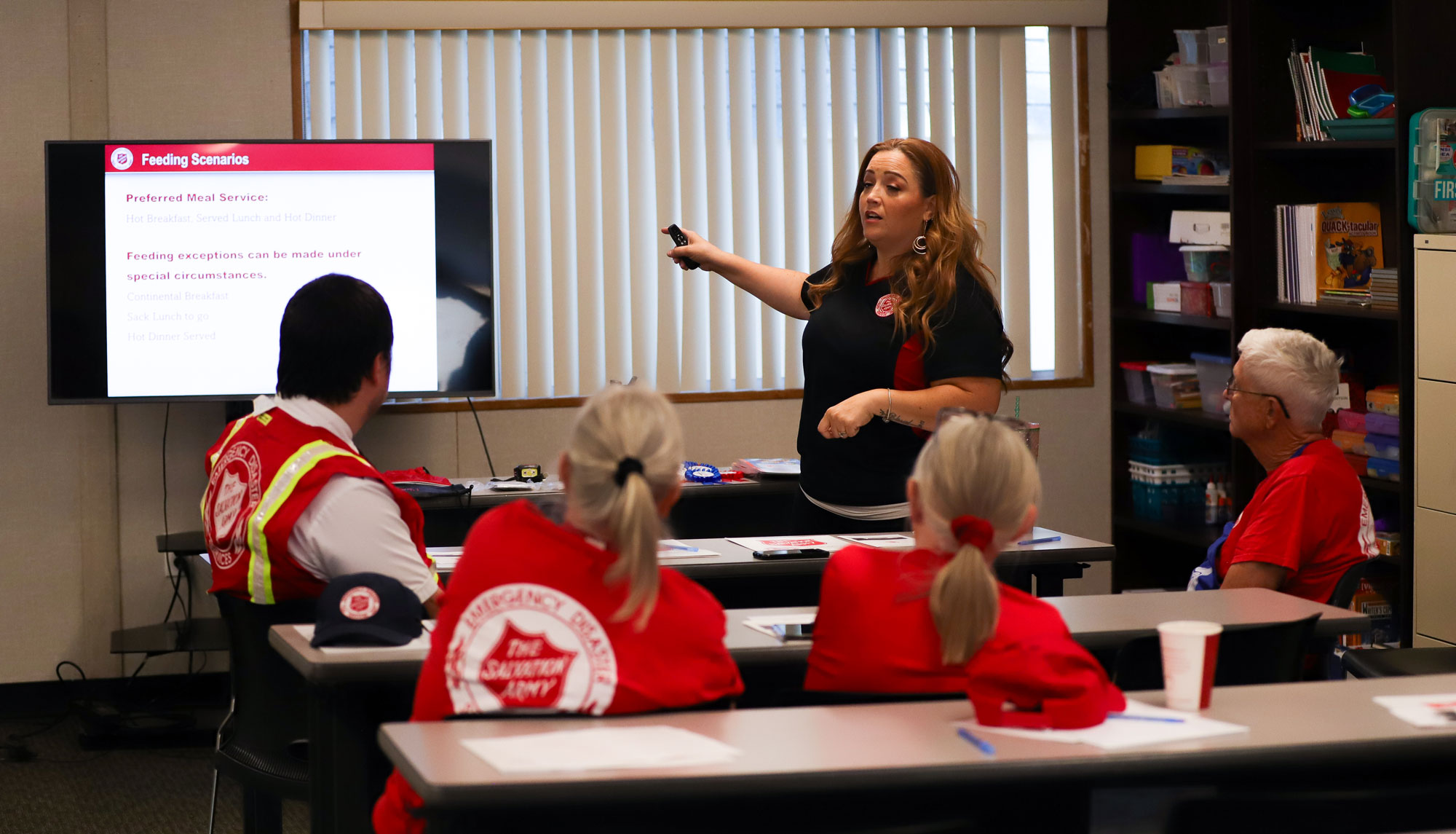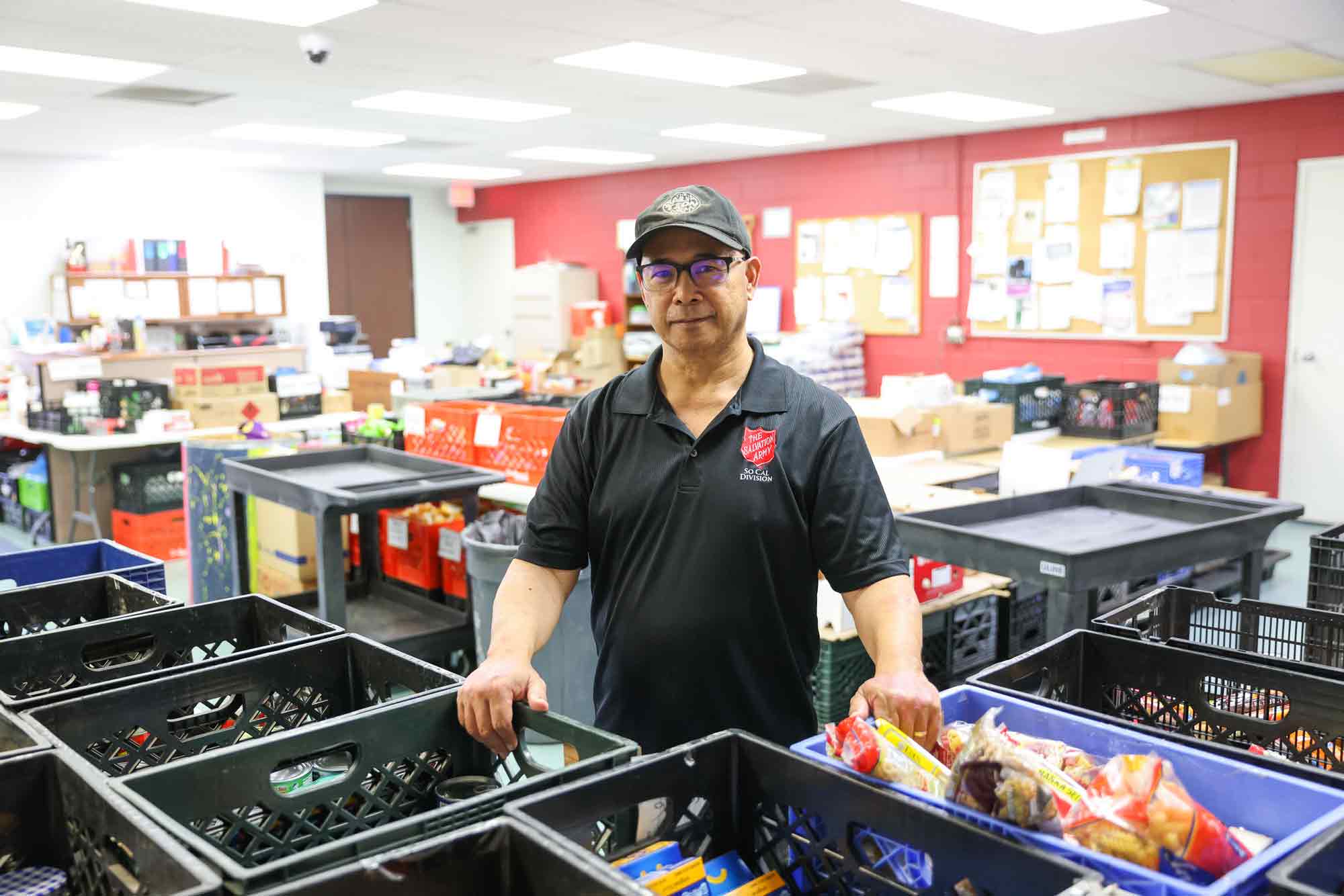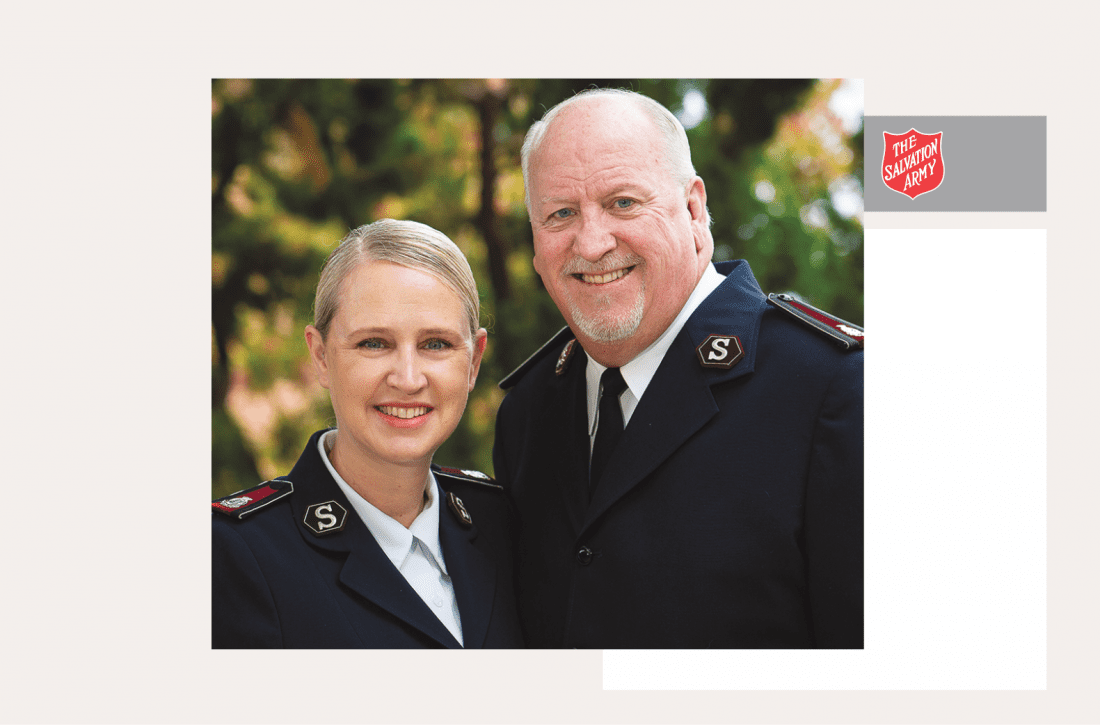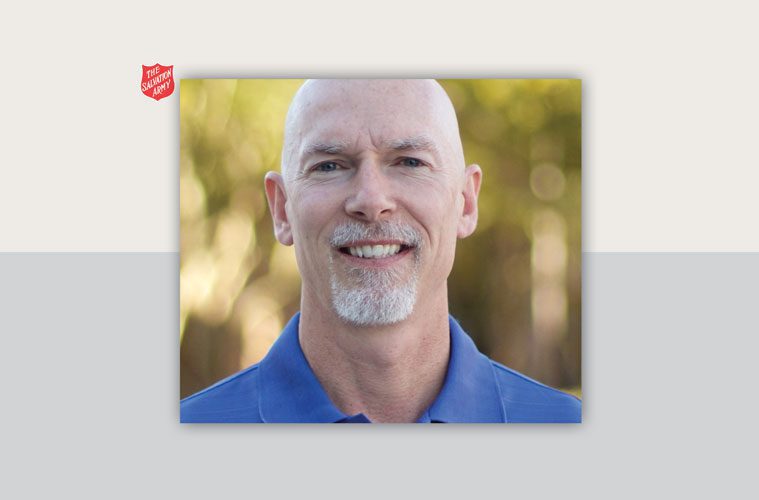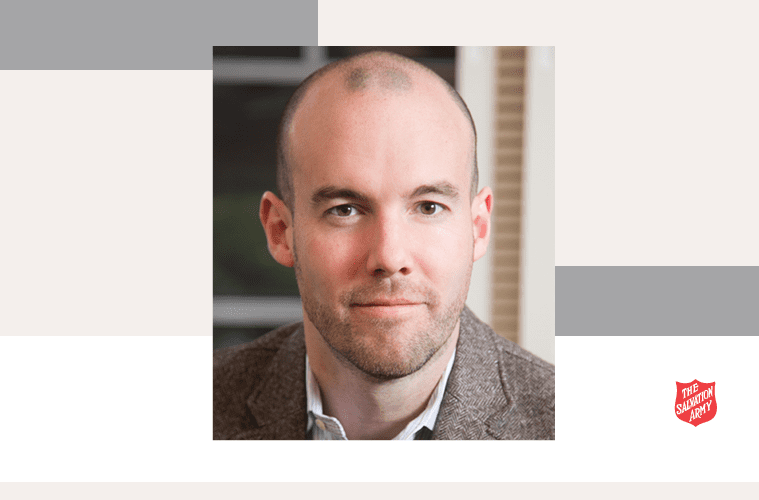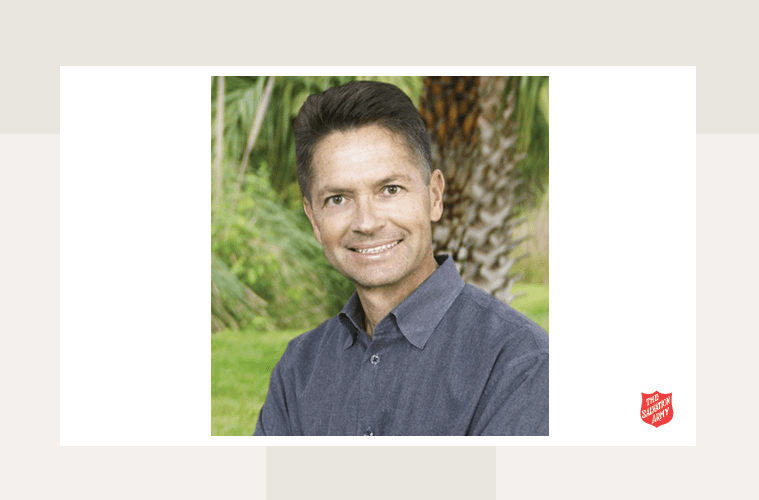Listen to this article
Listen to this article
Loading
Play
Pause
Options
0:00
-:--
1x
Playback Speed- 0.5
- 0.6
- 0.7
- 0.8
- 0.9
- 1
- 1.1
- 1.2
- 1.3
- 1.5
- 2
Audio Language
- English
- French
- German
- Italian
- Spanish
Open text
143: an atheist no more with cadet andrew flockhart. after 37 years of not believing, one day, god was there. that was the experience andrew flockhart had. as he says: i found god at the dallas-love field airport on a business trip. now in training to become a salvation army officer (or pastor) at the college for officer training at crestmont in rancho palos verdes, california, cadet andrew flockhart is preparing to be commissioned and sent out for ministry in june 2024. once an atheist but no more, he is here today to share more of his own story, his testimony about what has happened since that day in the airport. listen and subscribe to the do gooders podcast now. below is a transcript of the episode, edited for readability. for more information on the people and ideas in the episode, see the links at the bottom of this post. * * *. i found god at the dallas-love field airport on a business trip. the trip had been particularly stressful. as i sat at the gate waiting for my flight home, my mind was broiling with thoughts, reliving the day and trying to work through the challenges i faced. i found myself sitting with my eyes closed. i couldn’t bring peace to my thoughts. in an effort to stop overthinking, i picked up my bible. i was studying christianity and reading the bible from the beginning to support my girlfriend, the love of my life, and future wife, sheryl, in her beliefs. compromise is an important part of any relationship, and i saw this as a good place to meet halfway. still, i struggled with the subject matter. but this time, i noticed something different. as i read, my head became quiet, and i felt happier. i sat, staring at the same page, trying to process this. why should reading a book i didn’t believe make me feel happy? as an atheist, i had no rational answer. i grew up in a non-religious household. this never seemed odd to me. i never felt that anything was missing. i was blessed with a loving family, and while my sister and i didn’t always get everything we wanted, we never failed to have what we needed. after visiting a church with my mom as a teen, i concluded: “religion is weird!” i don’t recall what i expected to find, but i know i wasn’t expecting it to feel so stiff and ritualistic. after a few weeks, i concluded that i wasn’t really missing out by not going to church. at an age where you start discovering who you are as an individual, i had firmly labeled myself “agnostic.”. as i grew older, i began to notice differences between my religious and non-religious friends. my non-religious peers were more accepting of those who were different. i remember my beliefs began to change after one particular conversation with a close friend. he was outspoken about his faith, and we found ourselves in a theological debate. i expressed my concerns and reservations, and he asked, “well, what is it that you believe?” my honest answer was, “i’m not really sure.”. this answer was met with a scoff of disbelief, and the conversation quickly ended. i could see his judgment. i was a fool that wasn’t worth his time. that conversation marked not only the end of our friendship but the end of my agnosticism too. from then on, i would label myself an “atheist.”. what would it be like to meet god? at the airport that day, a memory popped into my head. in my youth, i once attended a lecture by astrophysicist neil degrasse tyson. at the end of the lecture, someone asked him: “what do you think it would be like to meet an alien?”. his answer was interesting. he said we tend to imagine such an event as a meeting of equals. they would teach us some things and, in turn, learn from us—an exchange of ideas and cultures. he asked us to consider that the difference between a man’s and a chimp’s brain is relatively minor, but what are the effects of that difference? from that difference stem advanced societies, skyscrapers, highways, art, music, and the space program. we can teach gorillas sign language and communicate with them and probably learn from that experience, but is it a conversation among equals? what, then, would a conversation with an alien be like? they would have to be more intelligent to reach us. why, then, do we think it would be a conversation on our terms? as i recalled this answer, i found myself asking, “what would it be like to meet god?” even as a non-believer, i knew if god existed and created all things, he would not be just a little more intelligent than us but infinitely more so. in my youthful ignorance, i would hurl challenges at god: “if you’re there, god, make yourself known.” when i didn’t hear an answer, i took that as proof of his nonexistence. but why did i think that communication would happen on my terms? why wouldn’t it be just like what i found myself experiencing at that airport? a subtle, yet significant change in the way i felt. as i contemplated this seemingly random memory from my past, the sudden onset of peace and happiness in my mind, i found that i did believe that god had just reached out and touched my thoughts. it turned into a flood of emotions and joy. i called sheryl to tell her what happened, fighting back tears as i sat in that crowded airport. tears that, only a moment earlier, i would have struggled to explain. after 37 years of not believing, one day, god was there. it turned my world upside down—or right side up. reevaluating my world. so what was life like as a new believer? in a word, confusing. in the beginning, i struggled with my identity. after so long as a non-believer, who was i as a person of faith? who did i want to be? all my role models in life had been either people without faith or people i looked up to despite faith. i didn’t know anyone who could model a good christian man. i didn’t yet know enough about jesus to look to him in those moments. my relationship with the word, on the other hand, grew quickly. i devoured the gospels and paul’s letters in the new testament. my struggles with the bible were mostly gone. before, i found everything to be confusing, and now i found a wealth of interesting information about the world. everything was different. i couldn’t rely on my prior knowledge to justify what i thought about anything. everything needed to be reevaluated against the newfound knowledge of a world created with purpose and intent. sheryl, while thrilled with the fact that i found god, was also a little overwhelmed with the prospect of having to be my main source of answers about god and christianity. she introduced me to her aunt, a retired officer–or pastor–in the salvation army. i knew absolutely nothing about the organization at the time, but i couldn’t have asked for a better person to speak with. her aunt was kind and well-spoken. her love for jesus was apparent in her words and actions. what struck me most was her way of challenging my thoughts with kindness. i remember her posing this question to me: “if you want a healthy mind, you read books and study. if you want a healthy body, you go to the gym and exercise. what do you do to take care of your soul?”. i couldn’t answer her. when i was an atheist, i didn’t give a lot of thought to the soul. looking back on my life, i couldn’t help but think about my battles with depression and my struggle to justify the source and cause. could it be that i simply hadn’t had anything in my life to uplift my soul? as my faith grew, sheryl and i started to struggle with the churches we were attending. while the sermons were good, we didn’t feel any sense of community. sheryl, who had grown up in the salvation army, felt it was time to go back. i was pleasantly surprised. the people were friendly. the officers made us feel welcome. the church was also diverse—so different from my youthful experiences of non-acceptance of those who were different. we couldn’t have been happier. we had found our home. sheryl pushed me to start attending bible study to help with my endless questions. i’ll never forget my first time. in my mind, i imagined others would look at me and know i was new to faith. i feared they would label me a phony and tell me i didn’t belong. i knew these fears were irrational, but that didn’t stop them from running through my mind. when i walked into the room, i found i was the first to arrive outside of the officer leading the session. to this day, i don’t think he knows what an impact his simple kindness and small talk had in easing my mind. during that first session, i don’t think i said a word. instead, i listened and absorbed. i saw and heard people who were able to speak from the heart so passionately and eloquently in a way i could not. it was an incredibly moving and eye-opening experience. it would take me a while to learn to be careful how i compared myself to others—that everyone has their own, personal faith journey to walk. but that day, i realized that i was a child in this new world and had a lot to learn. seeing god in action. looking back at how god worked in my life during those early days, i recall being significantly moved by the parable of the sower (matthew 13). my previous exposure to christianity and the bible was like the seed scattered upon the path, snatched away by the birds before any understanding of the truth could be discerned. scripture had now found fresh soil in my life. but this parable left a solid warning for me—don’t let this experience become the shallow rocky soil where understanding and belief are scorched and fall away when trials come. don’t let this newfound fire for god be a flash in the pan. his message was clear—i needed to get my roots in deep. but how do you dig your roots deep as a new christian? i knew i needed someone who would hold me accountable. someone who would notice if i suddenly didn’t show up to church. the only problem was that sheryl and i were so new to the corps we were attending that we didn’t know anyone yet. the answer seemed so simple—they needed to know us! for that to happen relatively quickly, we would need to start getting involved at church. the following week we sought out opportunities to start volunteering. we started slowly, but those experiences were so profound and moving that we soon sought out every opportunity we could find. while i initially volunteered to gain a relationship with those in the church, a relationship that i hoped would help hold me accountable to my newfound faith, i gained so much more. i gained new friends, an extended family, and a sense of purpose i had never realized before. those opportunities allowed me to see god in action. after nearly a year of taking every volunteer opportunity we could find, we started to get asked questions by our new friends and church family. were we considering becoming soldiers (salvationists)? were we considering becoming officers? at first, for us, the answers were easy: “no” and “no!”. while our resistance to soldiership was short-lived, each time someone asked us if we were considering officership, i wanted to laugh out loud and ask, “do you even know me?! how on earth could you think we should be officers?! we aren’t those kinds of people at all!” but no matter how many times we said no, the question just kept coming. i was left nearly speechless when one day, my father, as a non-believer, would ask me this question. i began to consider the possibility that this question might represent more than casual conversation. was it possible that god was leading us toward officership? was this part of his plan for us? sheryl and i began to wrestle with the question but internally, we both hoped it was not true. we had spent over a decade building successful careers, and we couldn’t imagine what it would be like to give that all up. the conversations we had about potential officership weighed heavy on our relationship. the strain of the weight of those conversations often frayed our nerves and sometimes left us short with each other. one evening, after another tense conversation with sheryl, as part of my personal devotions, i read proverbs 19:21: many are the plans in a person’s heart, but it is the lord’s purpose that prevails. that moment held a rush of comprehension and allowed me to see clearly for the first time. god hadn’t put people in our path to plant the seed of officership. god had been directing our steps for years toward this very purpose. and while god had been directing my steps, i had been resisting as his purposes didn’t align with my vision for our future. at that moment, i acknowledged god’s call on my life and realized resistance was not an option. when you live the majority of your life without believing in god, only to then have him, the creator, who upholds the world by his power, who formed the universe by the breath of his mouth, deign to stop and lift you out of ignorance and into his presence; how could you then say no to him? i approached sheryl, my hands trembling, and said to her, “i think i am getting called to be an officer.” she looked up from what she was doing and said, “that’s great. but i’m not! so stop talking to me about it!” i remember standing in stunned silence. “well… what now?” i thought. my call was unshaken; i was still clear about what god wanted of me, but i didn’t know what i should do next. i still didn’t understand the meaning of proverbs 19:21—that god’s purpose would prevail. pruning to bear fruit. a few days later, sheryl approached me in tears. like me, she had also spent time in personal devotion when a verse spoke into her life. the author of the devotional posed this question: “what is something in your life that needs to end in order for you to grow closer to god?” this question was linked to john 15:2, he cuts off every branch in me that bears no fruit, while every branch that does bear fruit he prunes so that it will be even more fruitful. sheryl knew the answer to this question; the branch that needed to be pruned was that of her career. her complete and utter focus on work was what was preventing her from having a closer, more fruitful relationship with god. she then told me that she had also felt called by god for some time but had been resisting it as she didn’t feel equipped to be an officer. when we stood together in mutual understanding of what god was asking of us, an amazing thing happened. all the tension that had pervaded our relationship over the previous months immediately disappeared. we felt a profound sense of peace and relief. it was an amazing sense of affirmation. however, after the excitement wore off, i began to worry. is it possible sheryl only said yes because she thought that would make me happy? is she only doing this for me? without even knowing i was having these doubts, sheryl squashed them in dramatic fashion the following morning when she gave two weeks notice to her employer. still, between the time we applied and our arrival at the salvation army college for officer training at crestmont, there were many times when it felt like we were making massive sacrifices. however, shortly after arriving at the training college, we realized the word “sacrifice” doesn’t fit. in sacrifice, you give up what is valued for something more important. we did value our careers and possessions, but once we surrendered them to god, we realized how valueless they were compared to the surpassing worth of knowing christ and stepping into his plan for our lives. i thank god for continuing to pursue me in the face of my ignorance and skepticism. i’m grateful for his love and the gift of faith he saw fit to bestow on me. i’m thankful to him for giving me a wonderful partner who teaches me more about love every day. i’m thankful to him for bringing me to a wonderful church family i’m honored to be a part of. i pray i didn’t hurt anyone in my ignorance or cause anyone to stumble in their faith. i would ask the forgiveness of those i judged and whom i met with unkind words. i pray god gives me the strength and the opportunity to help others who are struggling to find their way to him. additional resources:. get a look inside the latest caring print edition, “a place of belonging.”. you’ve probably seen the red kettles and thrift stores, and while we’re rightfully well known for both…the salvation army is so much more than red kettles and thrift stores. so who are we? what do we do? where? right this way for salvation army 101. get inside the caring magazine scripture study collection and find a suite of free, downloadable bible studies to guide you through topics from new beginnings through forgiveness, to understanding our imago dei or life hacks from david. listen and subscribe to the do gooders podcast now.
Open context player
Close context player
Plays:-Audio plays count
143: an atheist no more with cadet andrew flockhart. after 37 years of not believing, one day, god was there. that was the experience andrew flockhart had. as he says: i found god at the dallas-love field airport on a business trip. now in training to become a salvation army officer (or pastor) at the college for officer training at crestmont in rancho palos verdes, california, cadet andrew flockhart is preparing to be commissioned and sent out for ministry in june 2024. once an atheist but no more, he is here today to share more of his own story, his testimony about what has happened since that day in the airport. listen and subscribe to the do gooders podcast now. below is a transcript of the episode, edited for readability. for more information on the people and ideas in the episode, see the links at the bottom of this post. * * *. i found god at the dallas-love field airport on a business trip. the trip had been particularly stressful. as i sat at the gate waiting for my flight home, my mind was broiling with thoughts, reliving the day and trying to work through the challenges i faced. i found myself sitting with my eyes closed. i couldn’t bring peace to my thoughts. in an effort to stop overthinking, i picked up my bible. i was studying christianity and reading the bible from the beginning to support my girlfriend, the love of my life, and future wife, sheryl, in her beliefs. compromise is an important part of any relationship, and i saw this as a good place to meet halfway. still, i struggled with the subject matter. but this time, i noticed something different. as i read, my head became quiet, and i felt happier. i sat, staring at the same page, trying to process this. why should reading a book i didn’t believe make me feel happy? as an atheist, i had no rational answer. i grew up in a non-religious household. this never seemed odd to me. i never felt that anything was missing. i was blessed with a loving family, and while my sister and i didn’t always get everything we wanted, we never failed to have what we needed. after visiting a church with my mom as a teen, i concluded: “religion is weird!” i don’t recall what i expected to find, but i know i wasn’t expecting it to feel so stiff and ritualistic. after a few weeks, i concluded that i wasn’t really missing out by not going to church. at an age where you start discovering who you are as an individual, i had firmly labeled myself “agnostic.”. as i grew older, i began to notice differences between my religious and non-religious friends. my non-religious peers were more accepting of those who were different. i remember my beliefs began to change after one particular conversation with a close friend. he was outspoken about his faith, and we found ourselves in a theological debate. i expressed my concerns and reservations, and he asked, “well, what is it that you believe?” my honest answer was, “i’m not really sure.”. this answer was met with a scoff of disbelief, and the conversation quickly ended. i could see his judgment. i was a fool that wasn’t worth his time. that conversation marked not only the end of our friendship but the end of my agnosticism too. from then on, i would label myself an “atheist.”. what would it be like to meet god? at the airport that day, a memory popped into my head. in my youth, i once attended a lecture by astrophysicist neil degrasse tyson. at the end of the lecture, someone asked him: “what do you think it would be like to meet an alien?”. his answer was interesting. he said we tend to imagine such an event as a meeting of equals. they would teach us some things and, in turn, learn from us—an exchange of ideas and cultures. he asked us to consider that the difference between a man’s and a chimp’s brain is relatively minor, but what are the effects of that difference? from that difference stem advanced societies, skyscrapers, highways, art, music, and the space program. we can teach gorillas sign language and communicate with them and probably learn from that experience, but is it a conversation among equals? what, then, would a conversation with an alien be like? they would have to be more intelligent to reach us. why, then, do we think it would be a conversation on our terms? as i recalled this answer, i found myself asking, “what would it be like to meet god?” even as a non-believer, i knew if god existed and created all things, he would not be just a little more intelligent than us but infinitely more so. in my youthful ignorance, i would hurl challenges at god: “if you’re there, god, make yourself known.” when i didn’t hear an answer, i took that as proof of his nonexistence. but why did i think that communication would happen on my terms? why wouldn’t it be just like what i found myself experiencing at that airport? a subtle, yet significant change in the way i felt. as i contemplated this seemingly random memory from my past, the sudden onset of peace and happiness in my mind, i found that i did believe that god had just reached out and touched my thoughts. it turned into a flood of emotions and joy. i called sheryl to tell her what happened, fighting back tears as i sat in that crowded airport. tears that, only a moment earlier, i would have struggled to explain. after 37 years of not believing, one day, god was there. it turned my world upside down—or right side up. reevaluating my world. so what was life like as a new believer? in a word, confusing. in the beginning, i struggled with my identity. after so long as a non-believer, who was i as a person of faith? who did i want to be? all my role models in life had been either people without faith or people i looked up to despite faith. i didn’t know anyone who could model a good christian man. i didn’t yet know enough about jesus to look to him in those moments. my relationship with the word, on the other hand, grew quickly. i devoured the gospels and paul’s letters in the new testament. my struggles with the bible were mostly gone. before, i found everything to be confusing, and now i found a wealth of interesting information about the world. everything was different. i couldn’t rely on my prior knowledge to justify what i thought about anything. everything needed to be reevaluated against the newfound knowledge of a world created with purpose and intent. sheryl, while thrilled with the fact that i found god, was also a little overwhelmed with the prospect of having to be my main source of answers about god and christianity. she introduced me to her aunt, a retired officer–or pastor–in the salvation army. i knew absolutely nothing about the organization at the time, but i couldn’t have asked for a better person to speak with. her aunt was kind and well-spoken. her love for jesus was apparent in her words and actions. what struck me most was her way of challenging my thoughts with kindness. i remember her posing this question to me: “if you want a healthy mind, you read books and study. if you want a healthy body, you go to the gym and exercise. what do you do to take care of your soul?”. i couldn’t answer her. when i was an atheist, i didn’t give a lot of thought to the soul. looking back on my life, i couldn’t help but think about my battles with depression and my struggle to justify the source and cause. could it be that i simply hadn’t had anything in my life to uplift my soul? as my faith grew, sheryl and i started to struggle with the churches we were attending. while the sermons were good, we didn’t feel any sense of community. sheryl, who had grown up in the salvation army, felt it was time to go back. i was pleasantly surprised. the people were friendly. the officers made us feel welcome. the church was also diverse—so different from my youthful experiences of non-acceptance of those who were different. we couldn’t have been happier. we had found our home. sheryl pushed me to start attending bible study to help with my endless questions. i’ll never forget my first time. in my mind, i imagined others would look at me and know i was new to faith. i feared they would label me a phony and tell me i didn’t belong. i knew these fears were irrational, but that didn’t stop them from running through my mind. when i walked into the room, i found i was the first to arrive outside of the officer leading the session. to this day, i don’t think he knows what an impact his simple kindness and small talk had in easing my mind. during that first session, i don’t think i said a word. instead, i listened and absorbed. i saw and heard people who were able to speak from the heart so passionately and eloquently in a way i could not. it was an incredibly moving and eye-opening experience. it would take me a while to learn to be careful how i compared myself to others—that everyone has their own, personal faith journey to walk. but that day, i realized that i was a child in this new world and had a lot to learn. seeing god in action. looking back at how god worked in my life during those early days, i recall being significantly moved by the parable of the sower (matthew 13). my previous exposure to christianity and the bible was like the seed scattered upon the path, snatched away by the birds before any understanding of the truth could be discerned. scripture had now found fresh soil in my life. but this parable left a solid warning for me—don’t let this experience become the shallow rocky soil where understanding and belief are scorched and fall away when trials come. don’t let this newfound fire for god be a flash in the pan. his message was clear—i needed to get my roots in deep. but how do you dig your roots deep as a new christian? i knew i needed someone who would hold me accountable. someone who would notice if i suddenly didn’t show up to church. the only problem was that sheryl and i were so new to the corps we were attending that we didn’t know anyone yet. the answer seemed so simple—they needed to know us! for that to happen relatively quickly, we would need to start getting involved at church. the following week we sought out opportunities to start volunteering. we started slowly, but those experiences were so profound and moving that we soon sought out every opportunity we could find. while i initially volunteered to gain a relationship with those in the church, a relationship that i hoped would help hold me accountable to my newfound faith, i gained so much more. i gained new friends, an extended family, and a sense of purpose i had never realized before. those opportunities allowed me to see god in action. after nearly a year of taking every volunteer opportunity we could find, we started to get asked questions by our new friends and church family. were we considering becoming soldiers (salvationists)? were we considering becoming officers? at first, for us, the answers were easy: “no” and “no!”. while our resistance to soldiership was short-lived, each time someone asked us if we were considering officership, i wanted to laugh out loud and ask, “do you even know me?! how on earth could you think we should be officers?! we aren’t those kinds of people at all!” but no matter how many times we said no, the question just kept coming. i was left nearly speechless when one day, my father, as a non-believer, would ask me this question. i began to consider the possibility that this question might represent more than casual conversation. was it possible that god was leading us toward officership? was this part of his plan for us? sheryl and i began to wrestle with the question but internally, we both hoped it was not true. we had spent over a decade building successful careers, and we couldn’t imagine what it would be like to give that all up. the conversations we had about potential officership weighed heavy on our relationship. the strain of the weight of those conversations often frayed our nerves and sometimes left us short with each other. one evening, after another tense conversation with sheryl, as part of my personal devotions, i read proverbs 19:21: many are the plans in a person’s heart, but it is the lord’s purpose that prevails. that moment held a rush of comprehension and allowed me to see clearly for the first time. god hadn’t put people in our path to plant the seed of officership. god had been directing our steps for years toward this very purpose. and while god had been directing my steps, i had been resisting as his purposes didn’t align with my vision for our future. at that moment, i acknowledged god’s call on my life and realized resistance was not an option. when you live the majority of your life without believing in god, only to then have him, the creator, who upholds the world by his power, who formed the universe by the breath of his mouth, deign to stop and lift you out of ignorance and into his presence; how could you then say no to him? i approached sheryl, my hands trembling, and said to her, “i think i am getting called to be an officer.” she looked up from what she was doing and said, “that’s great. but i’m not! so stop talking to me about it!” i remember standing in stunned silence. “well… what now?” i thought. my call was unshaken; i was still clear about what god wanted of me, but i didn’t know what i should do next. i still didn’t understand the meaning of proverbs 19:21—that god’s purpose would prevail. pruning to bear fruit. a few days later, sheryl approached me in tears. like me, she had also spent time in personal devotion when a verse spoke into her life. the author of the devotional posed this question: “what is something in your life that needs to end in order for you to grow closer to god?” this question was linked to john 15:2, he cuts off every branch in me that bears no fruit, while every branch that does bear fruit he prunes so that it will be even more fruitful. sheryl knew the answer to this question; the branch that needed to be pruned was that of her career. her complete and utter focus on work was what was preventing her from having a closer, more fruitful relationship with god. she then told me that she had also felt called by god for some time but had been resisting it as she didn’t feel equipped to be an officer. when we stood together in mutual understanding of what god was asking of us, an amazing thing happened. all the tension that had pervaded our relationship over the previous months immediately disappeared. we felt a profound sense of peace and relief. it was an amazing sense of affirmation. however, after the excitement wore off, i began to worry. is it possible sheryl only said yes because she thought that would make me happy? is she only doing this for me? without even knowing i was having these doubts, sheryl squashed them in dramatic fashion the following morning when she gave two weeks notice to her employer. still, between the time we applied and our arrival at the salvation army college for officer training at crestmont, there were many times when it felt like we were making massive sacrifices. however, shortly after arriving at the training college, we realized the word “sacrifice” doesn’t fit. in sacrifice, you give up what is valued for something more important. we did value our careers and possessions, but once we surrendered them to god, we realized how valueless they were compared to the surpassing worth of knowing christ and stepping into his plan for our lives. i thank god for continuing to pursue me in the face of my ignorance and skepticism. i’m grateful for his love and the gift of faith he saw fit to bestow on me. i’m thankful to him for giving me a wonderful partner who teaches me more about love every day. i’m thankful to him for bringing me to a wonderful church family i’m honored to be a part of. i pray i didn’t hurt anyone in my ignorance or cause anyone to stumble in their faith. i would ask the forgiveness of those i judged and whom i met with unkind words. i pray god gives me the strength and the opportunity to help others who are struggling to find their way to him. additional resources:. get a look inside the latest caring print edition, “a place of belonging.”. you’ve probably seen the red kettles and thrift stores, and while we’re rightfully well known for both…the salvation army is so much more than red kettles and thrift stores. so who are we? what do we do? where? right this way for salvation army 101. get inside the caring magazine scripture study collection and find a suite of free, downloadable bible studies to guide you through topics from new beginnings through forgiveness, to understanding our imago dei or life hacks from david. listen and subscribe to the do gooders podcast now.
Listen to this article











